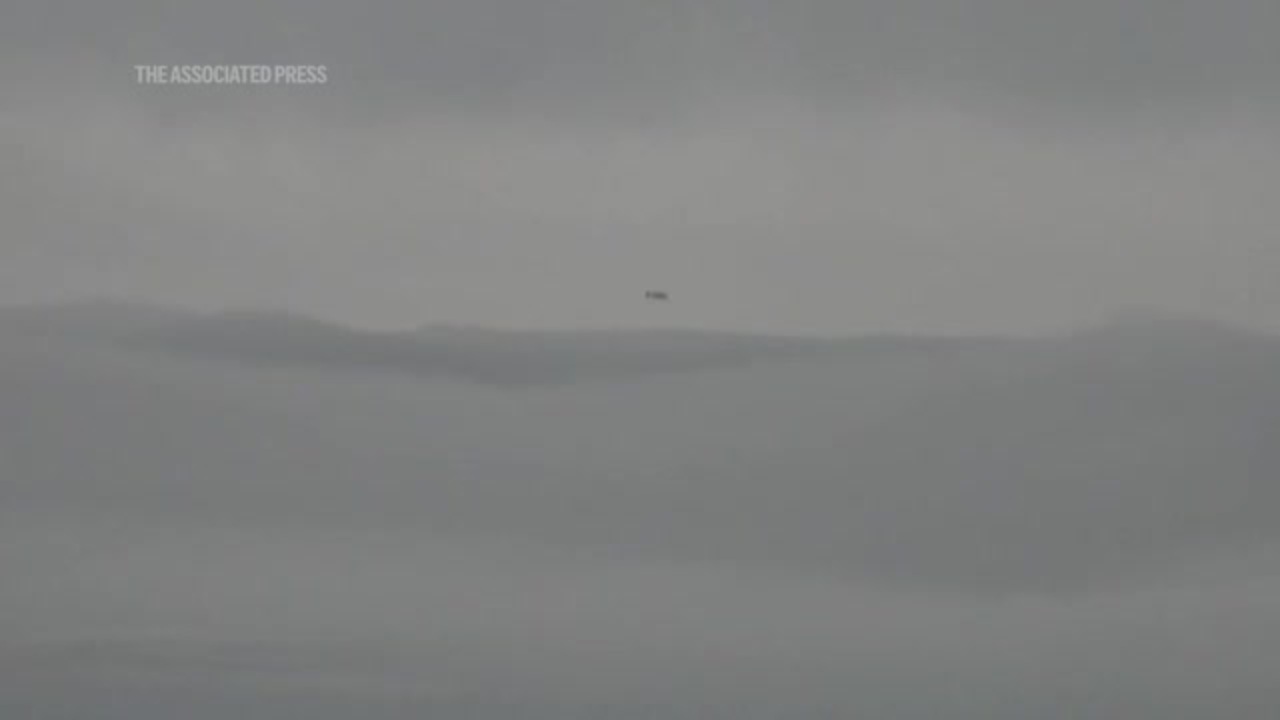The Senate Intelligence Committee released its report Tuesday on the CIA's use of torture techniques on terror suspects after 9/11, finding torture did not "effectively" acquire intelligence to prevent attacks while the CIA purposefully hid the program from the White House and other government officials.
The release of the 525-page report came a day after the Pentagon and the State Department warned U.S. troops and embassies worldwide to be on guard against possible violent reactions from the Islamic State in Iraq and Syria (ISIS) and other terror groups.
Based on 20 case studies included in the report, the committee concluded that the extreme methods used by the CIA produced little in the way of useful intelligence on disrupting terror plots, capturing terror leaders or locating Osama Bin Laden.
The extreme measures included death threats, sleep deprivation, waterboarding, "rectal hydration" and "rectal feeding," the report said.
"The major lesson of this report is that regardless of the pressures and the need to act, the intelligence community's actions must always reflect who we are as a nation, and adhere to our laws and standards," Sen. Dianne Feinstein, the committee's chairwoman, said in releasing the report.
Read the entire 525 page report on CIA torture
The committee found that the CIA's use of its "enhanced interrogation techniques was not an effective means of acquiring intelligence or gaining cooperation from detainees." The CIA also made "inaccurate claims on their effectiveness," the report stated.
The committee detailed how CIA interrogators used a set of torture techniques at a host of black sites that have been revealed to be located in Afghanistan, Europe, and Thailand.
Senate committee staffers explained how CIA officials also repeatedly concealed the extent of the Detention and Interrogation program to officials from the White House and Congress. Authors of the report also said CIA leaders lied about collect key intelligence needed to prevent attacks on U.S. targets from these torture techniques.
The report further detailed how the CIA was unprepared to execute the interrogation and torture techniques in an effort to quickly stand up the program after the 9/11 attacks. In fact, CIA interrogators mistakenly tortured CIA informants who they thought were potential terrorists before CIA officials discovered the error, according to the report.
While praising the CIA's efforts to keep the nation safe, President Obama said that "some of the actions that were taken were contrary to our values.
"That is why I unequivocally banned torture when I took office, because one of our most effective tools in fighting terrorism and keeping Americans safe is staying true to our ideals at home and abroad."
"The report documents a troubling program involving enhanced interrogation techniques on terrorism suspects in secret facilities outside the United States, and it reinforces my long-held view that these harsh methods were not only inconsistent with our values as nation, they did not serve our broader counterterrorism efforts or our national security interests," Obama said.
"Moreover, these techniques did significant damage to America's standing in the world and made it harder to pursue our interests with allies and partners," Obama said.
In its response to the report, the CIA said in a statement that it "tells part of the story" but "there are too many flaws for it to stand as the official record of the program."
The CIA admitted to mistakes in the detention and interrogation program and in the agency's analysis of the information gathered but added that "we still must question a report that impugns the integrity of so many CIA officers when it implies — as it does clearly through the conclusions — that the agency's assessments were willfully misrepresented in a calculated effort to manipulate."
Without being specific, Defense Secretary Chuck Hagel said the Pentagon had urged the redaction of several parts of the Senate report as a precaution to protect service members against possible retaliation.
Hagel, who was traveling in the Middle East, also told CNN that the military had taken extensive measures to protect troops worldwide.
"We've not detected anything specific but we want to be prepared and we are," Hagel said.
At the White House, senior administration officials defended the Justice Department's decision thus far not to pursue criminal cases against any CIA agents who exceeded the guidelines on "enhanced interrogation techniques" set by the administration of former President George W. Bush.
Speaking on background in a conference call with reporters, a senior administration official said "we fell short, the CIA did" in exceeding the guidelines but the Justice Department had "determined not to bring charges."
A second administration official said that President Obama still retained "high confidence" in CIA Director John Brennan, who strongly opposed release of the report and many of its findings.
The official declined to speculate on whether President Obama's executive order in January 2009 barring use of the techniques would survive in future administrations or might be changed by Congress.
The Senate report "adds a strong piece of why we should not do these things," the official said, but "Congress obviously has its own decision to make."
In a Senate floor speech, Feinstein said that former President Bush and then-Secretary of State Colin Powell were kept in the dark by the CIA on the worst methods being used, including dragging and beating naked prisoners.
Feinstein read an internal CIA communication in which an agent said that "Powell would blow his stack if he were briefed" on the methods.
The worst techniques were used at CIA "black sites" that were set up around the world for the interrogations, in many cases without the knowledge of the host nation.
The senior administration officials confirmed that Obama's phone call Tuesday morning to Polish Prime Minister Ewa Kopacz was partly to apologize for the CIA's use of a black site in Poland. The disclosure of the black site several years ago outraged the Polish government.
The grim conditions at the black sites combined with the harsh interrogation methods led to the physical and psychological deterioration of the detainees, the report said. Lack of heat likely contributed to the death at a black site of at least one detainee, the report said.
"The CIA applied its enhanced interrogation techniques with significant repetition for days or weeks at a time," the report said. "Interrogation techniques such as slaps and 'wallings' (slamming detainees against a wall) were used in combination, frequently concurrent with sleep deprivation and nudity."
"The waterboarding technique was physically harmful, inducing convulsions and vomiting," the report said. Internal CIA records described the waterboarding of Khalid Sheikh Mohammed, the alleged mastermind of the 9/11 attacks, as turning into a "series of near drownings," the report said.
"Sleep deprivation involved keeping detainees awake for up to 180 hours, usually standing or in stress positions, at times with their hands shackled above their heads," the report said.
Alberto J. Mora , who as general counsel for the Navy in 2002 opposed the "enhanced interrogation" techniques against detainees at Guantanamo Bay, said "the takeaway" of the Senate report is "the astonishing degree of cruelty this program represented."
"The words we used to talk about it [such as enhanced interrogation] masked the reality," Mora said during a telephone roundtable with reporters organized by Human Rights First in Washington, D.C., a U.S.-based international human rights group. "I think 'torture' is an important word."
While President George W. Bush always said he opposed torture and that the U.S. did not torture, the Senate report "proves that threshold was crossed and we committed torture," Mora said.
Former U.S. Ambassador Thomas Pickering defended the release of the report against claims it would put U.S. citizens, including service members and diplomats, at risk.
U.S. agencies have had four years to prepare for the release of the findings, he said.
"The truth is that much of this information is already out there, but this is a report of a branch of the American government, with access to thousands of classified documents and the opportunity to verify ... exactly what happened. Something that we haven't had before," Pickering said.
-- Richard Sisk can be reached at richard.sisk@military.com
-- Bryant Jordan can be reached at bryant.jordan@military.com























